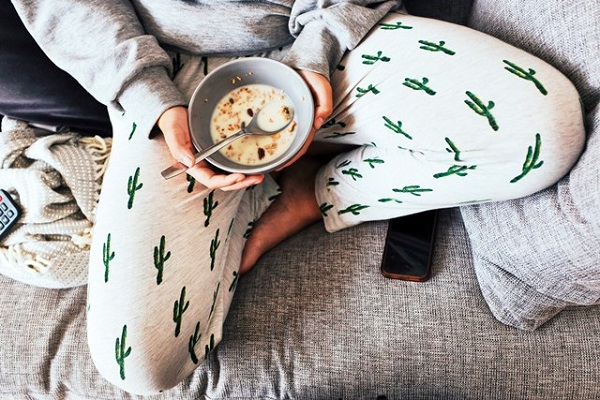
From waking up at the same time each morning to predictable discretionary spending, our days are littered with routines, which have all been disrupted by the lockdown measures. But one upside of staying at home is that most of us are spending less. We take a look at how you can make these healthier financial habits stick.
More cash in your pocket
Unsurprisingly, spending patterns have changed dramatically in the past month.
The Netherlands has seen a significant drop in debit card spending falling 24% year-on-year. The likes of cinemas, restaurants and sporting venues are experiencing the largest fall too. In China, unsurprisingly, spending has reduced across 15 categories including travel, hairdressing and clothing and accessories. In Australia, discretionary spending was 26% below normal levels last week.
And while we may be spending more on things like home entertainment and medical supplies, for many, these changes have left us all with a little bit more disposable income than normal. With what’s left in our bank accounts, we are now experiencing a real-life demonstration of just how savings small amounts regularly adds up. And it doesn’t necessarily need to revert once the epidemic is over.
Holding onto good habits
Isolation measures haven’t been around long enough to turn spending changes into habits. But there is no single measure of how long a habit takes to stick.
Habit formation requires three elements: a cue, a routine and a reward.
It may be useful to take a moment to consider how disrupted spending habits might be saving you money. For example, travel expenses might have been replaced by using a bike to avoid enclosed spaces. The sandwich you used to buy at lunchtime on the high street might have been replaced by cooking a dinner with enough so that leftovers are available for lunch. In turn, this may affect spending at the supermarket.
Whatever activity is relevant to you, it may be useful to take a moment to consider how disrupted spending habits might now be saving you money. If this is something you want to continue long-term, behavioural economics has some tips for helping habits stick:
- Make it easy: design your environment to make your new habit easy. For example, if you have started calculating outgoings and want to keep doing so, make it easy by downloading an app which will automatically record your spending or keep a small pen and paper in your bag so you can jot spending down as you go. All of this will make it easy.
- Follow your own rules: create rules that you can follow to support your new habit. For example, if your day-to-day spending on coffee has reduced and you want to keep it this way, don’t walk past the coffee shop!
- Make savings obvious: measure the benefits of your new habit. For example, if you are now saving an extra €50 per week due to not spending it on social outings and you want to keep this up, record your savings in a money management app which celebrates savings milestones.
- Make decisions now: don’t wait until things get back to relative normality; support new habits now. If you are currently shopping once a week and finding this has reduced your spending on groceries, decide to keep doing it now and commit to it. This might require writing shopping lists, so you don’t forget things and need to revisit. You can also plan ahead and buy in bulk, therefore consuming more economically.
These unprecedented circumstances, where routines have broken down, may unexpectedly offer us suitable conditions to develop newer, healthier financial habits.
This piece is based on an article originally published on think.ing.com.









